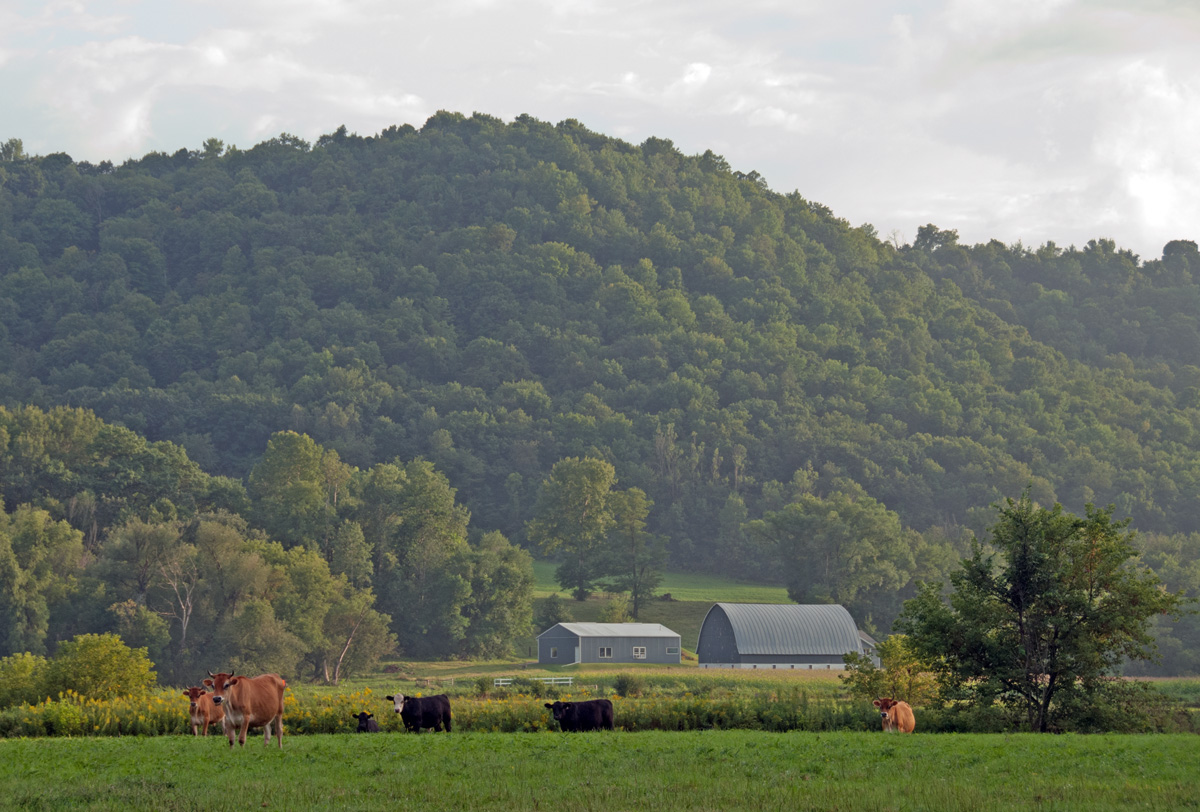Watching farm trucks pull into the Capital Square farmers market can make one wonder how to get regional food to regional markets more efficiently. Driftless farm and food businesses like Driftless Organics, Morningside Orchard, 5th Season and Organic Valley work hard to figure out how to engage with green transportation options to get their products to Minneapolis, Madison, Milwaukee, even Chicago. Logistics, labor regulations, congestion, docking arrangements make this all very complex.
In April, 2010 CIAS convened a Driftless Food and Farm meeting where some of the participants broke out to discuss transportation and logistics. Compared to some of the other topic groups, this group was at relatively early stages of thinking, planning and doing. People in the region were working independently, but were increasingly ready to organize. This part of the food supply chain offers opportunity to grow and diversify the local economy much like other parts of the chain, but the way forward is less clear than it is with bricks-and-mortar projects. There is a strong interest in maintaining a vision of sustainability in the development of new systems.
The topic group identified these next steps:
- Who in the region can provide leadership for this work? What is necessary for them to build capacity to take on that leadership? Where do we find that support?
- What is the most appropriate scale to work with? Local, county, multi-county, state, etc.?
- Where could the region find industry expertise, if only to understand what questions yet need to be answered in thinking about distribution and logistics?
- How do we build awareness with farmers about the role that this part of the food supply chain plays and the associated costs / savings of working in moving beyond direct marketing into a wholesale model?
CIAS is pleased to report on progress made to address some of these questions.In 2011 and 2012, CIAS made important connections to freight engineering research center on campus – CFIRE – and supported a group of students to understand what issues we face in moving high-value local food to regional markets. Rosa Kozub, Lindsey Day-Farnsworth, David Nelson, Ben Zeitlow, Peter Allen, and Rachel Murray, along with Teresa Adams, Alfonso Morales, and Ernie Perry all worked with CIAS to crack this nut.
In February 2013, CIAS teamed up with USDA-Agricultural Marketing Service’s transportation division to offer the meeting “Networking Across the Supply Chain: Transportation Innovations for Local and Regional Food Systems“. More than 100 participants – the majority of whom had business interests in this topic – participated and shared their expertise.
June 2014 USDA-AMS and UW-CIAS released a report that describes what happened at this meeting and our best thinking to date on some of the fundamental questions facing the local food movement. To view a summary of the meeting, go to: http://www.scribd.com/doc/231458906Â Emergent strategies that we’ve documented include:
- strengthen regional supply chains by helping like-minded businesses find one another, and provide a venue for business communication and supply chain governance;
- improve logistics at the region level, recognizing that LTL freight requires terminal markets that can de-aggregate products and TL freight, especially around metro regions, may benefit from innovative infrastructure investments; and
- investigate multi-modal and dual purpose approaches to increase efficiencies
We now have a nimble team of researchers, staff and students on campus with growing expertise on supply chain development for regional food. Thanks to all who participated in the six Driftless Food and Farm meetings who helped shape subsequent investigations and whose input resulted in research with real-world usefulness.
Next Steps
CIAS, CFIRE, the Center for Coops and the State Smart Transportation Innitiative (a project of another UW campus research center – COWS)Â are working together with Organic Logistics, the Wisconsin Local Foods Hub, Fresh Taste, and other partners to take this work to the next level. We are writing proposals to vet some of the emergent ideas with stakeholders and further engage the region in creating the world we envision.
Watch for further updates as we make progress. And please let us know what you think of our work in this topic area, at any time.


